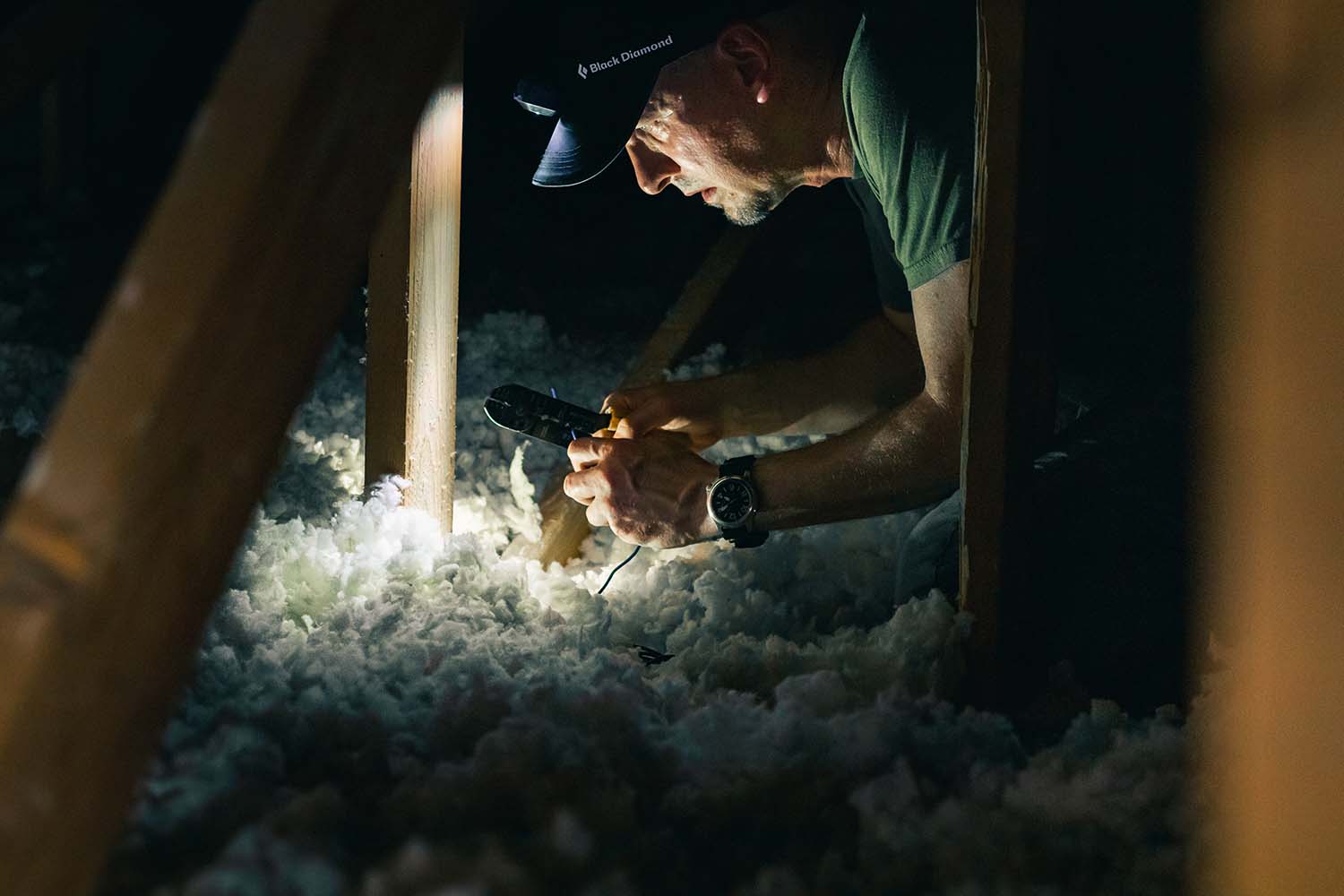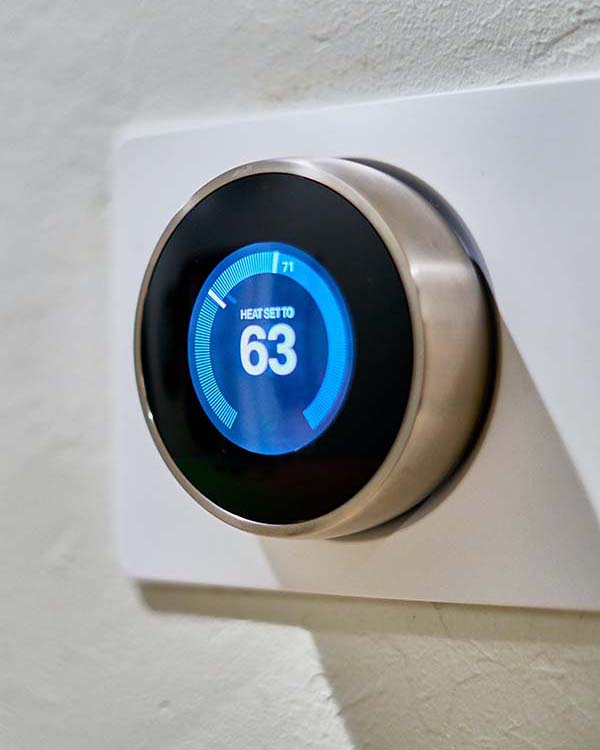Energy is one of the biggest costs for families in the UK, costing each household approximately £1254 a year. Naturally, we need energy to survive. It heats our food, cleans our clothes, gives us light and entertainment and keeps us warm in the winter. It would be a virtual impossibility to live without any energy in our homes, but that doesn’t mean we have to use it excessively. We use far more energy than we need to, and we could all benefit from reducing our consumption.

Photo, Hannah Xu.
This can be done in several ways, ranging from some small behavioural changes to major home improvements. Cutting down on the amount of energy we use is supported by two significant motives: Firstly, it can help you save an enormous amount of money on your energy bills, and secondly, it is one of the most effective ways to protect the planet in the midst of an environmental crisis.
Anyone can make changes to the way they consume energy, and the following five energy-saving tips will give you some much-needed inspiration to get started.
Change your everyday habits: Almost everything you do in your home uses up energy in some way. Washing your hands, flushing the toilet, turning on a light and making some toast. In isolation, each of these actions has a minimal cost, both financially and environmentally. But all of these little actions add up, and the aggregate effect over months and years is staggering. You don’t need to make monumental life changes to conserve energy; all you need to do is adjust your behaviours.
Look at how you are using energy and pinpoint any areas where you could cut back without significantly impacting your life. Here are a few ideas for adopting more energy-efficient habits in your home.
— Turn off all lights and appliances when you are not using them
— Wash dishes by hand instead of using the dishwasher
— Hang your clothes out to dry rather than putting them in a dryer
— Turn down the heating and wear warmer clothes
— Limit the amount of time you spend in the shower
Implementing these everyday habits will not have a massive impact on your life, but over time you will notice the difference in your energy expenditure, and the environment will thank you too.

Photo, Jude Beck
Switch out your lightbulbs: Do you use energy-efficient light bulbs in your home? If not, there is no excuse. Traditional incandescent bulbs consume a tremendous amount of energy and have to be replaced far more often than their energy-efficient alternatives.

Photo, Melissa Askew.
Consider replacing your lightbulbs with a more eco-friendly option, such as halogen incandescent bulbs, compact fluorescent lights (CFLs) or light-emitting diode bulbs (LEDs). Using these alternatives will make a minimal difference to the light level in your home while using 20-80% less energy and lasting up to 25 times longer than a traditional bulb.
The only downside is that they are more expensive when you buy them off the shelf, but the savings on your energy bill and the longer service life means they ultimately cost a lot less in the long run.
Replace your old inefficient boiler: Your heating makes up more than 50% of the total amount spent on your energy bills each year, so this seems like an excellent place to target your energy-saving focus. Modern boilers are generally designed to be heat efficient.
They are usually condensing boilers, which means they have a large heat exchange which minimises heat loss. This allows them to warm your home as efficiently as possible. Older boilers are not so efficient, and cost more to run in the long term. If you have an old boiler that puts a dent in your finances each month, you may wish to consider getting a boiler replacement. Purchasing a new boiler requires a substantial initial cost, but over time the increased efficiency will generate much lower heating bills.
It’s a long term investment that will pay off enormously in time. A modern boiler can be anywhere between 8% and 300% more energy-efficient than a traditional boiler. If you are looking to get a new boiler quote it is beneficial to get a few quotes to compare your options.

Photo, Greg Rosenke.
Insulate your home: A naturally warm home requires less heating than a draughty one. If you often find yourself shivering in the winter months and cranking up the temperature, you may be able to do something about it. Rather than spending all that money on excessive heating bills each month, it may be worthwhile to invest in better home insulation.

Photo, Dan LeFebvre.
Adequate insulation will help your home retain heat throughout the colder part of the year and keep heat out in summer. Not only will this make you more comfortable throughout the year, but it will also significantly lower your utility bills. The level and type of insulation will depend on the climate where you live and will vary across different areas of your house.
You may also benefit from weatherproofing your home to improve heat retention further. This will involve sealing any air leaks in windows, doors or vents that allow heat to escape. By applying caulk or weather stripping to these gaps, you will benefit from an inexpensive energy-saving solution that will recoup your investment within a year.
Install a smart thermostat: With a traditional thermostat, you are limited in your heating options. You have to switch the heat on and off manually, and you usually have to heat the entire home to one universal temperature. This is particularly wasteful if only one or two rooms are in use at a given time.
By installing a smart thermostat, you can be much more efficient with your energy use. A smart thermostat only heats the rooms you are using and will turn off or reduce the heating when you are asleep or away. They can be controlled by a programmable remote, so you can get your home warm and ready for precisely the time you walk through the door. A smart thermostat solution throughout your home could save you up to £100 a year.
We often don’t think about how much energy we waste on a daily basis. By being smart and strategic about your energy use, you can drastically cut your energy bills and make a real impact on the future of the planet.








